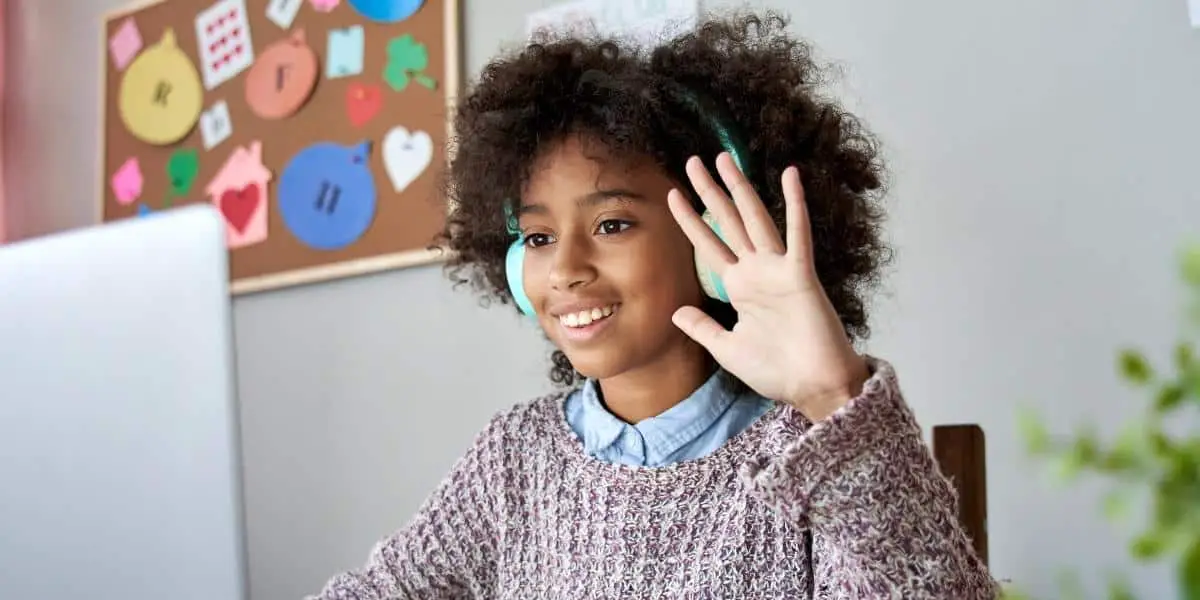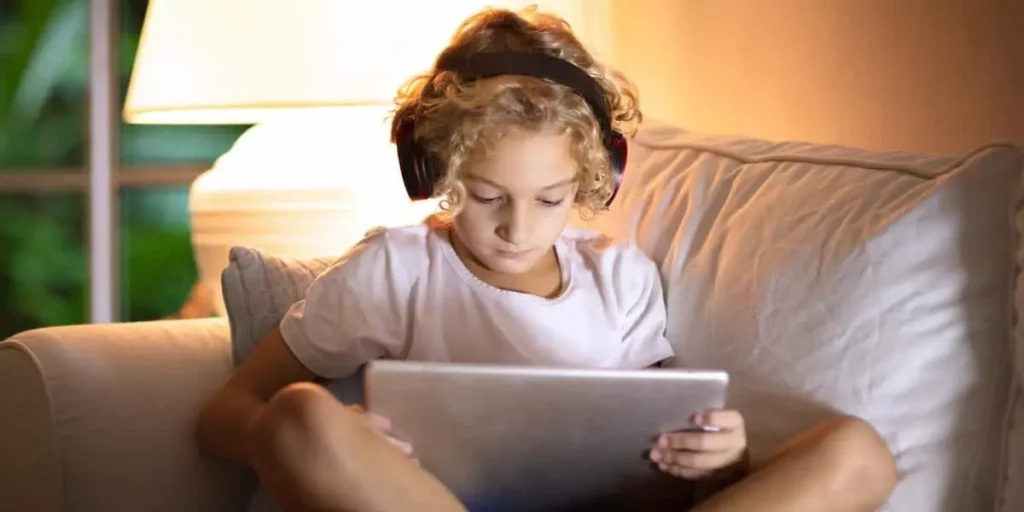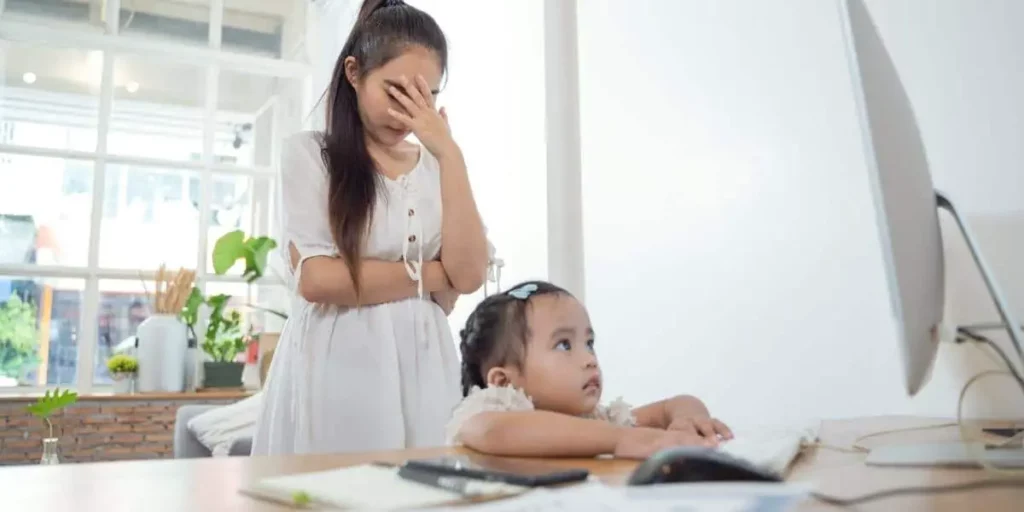
The COVID-19 pandemic was first heard of in December 2019. During this time, people had no idea what was in store for them. Professionals were at a loss for words to describe the virus and its potential effects. However, the virus spread quickly; too quickly, in fact. Child development news has helped parents learn more about how the pandemic affected kids. However, a lot of parents were still at a loss back then.
All over the world, people were suddenly faced with a new reality. One in which they had to stay indoors, away from others, and limit their physical contact. Businesses closed down, schools shuttered their doors, and families were left to fend for themselves.
It’s been over two years since the pandemic started, and we are still learning about COVID-19. Scientists are working tirelessly to understand the virus and its effects. This is especially true for those who are working in the medical community, especially since they are on the frontlines of the COVID-19 fight.
Even now that the threats of the virus are slowly receding, we are still living with the aftermath of COVID-19. The pandemic has changed our lives in many ways and will continue to do so for years to come.
One area that is still being studied is the effect of COVID-19 on children’s brains. After all, kids had no choice but to adjust to a different learning setup than they were used to. Instead of face-to-face classes, they now have to learn through Zoom or Google Meet.
This is a big change for them, and it’s one that can have long-lasting effects on their development. COVID-19 has forced us to re-evaluate how we educate our children and what methods work best for them.
It’s still too early to tell what the long-term effects of COVID-19 will be on children’s brains, but we are starting to see some changes. For example, kids are now more anxious and stressed than they were before.
They are also having a harder time paying attention and retaining information. This is likely because of all the changes that have happened in their lives over the past two years. COVID-19 has turned their world upside down and they are still trying to make sense of it all.
It’s important to remember that children are resilient and they will adapt to these changes over time. However, we need to be there to support them through this tough time. We need to provide them with the resources and tools they need to succeed.
Now, let us explore how COVID-19 has affected children’s development. By learning how COVID-19 has impacted children, we can better support them as they once again transition to a world that is slowly recovering from the impacts of this pandemic.
Understanding the Devastating Consequences of COVID-19

We know that COVID-19 has had a massive impact on our world. The virus has caused death, unemployment, and tremendous stress for many people. It is no surprise then that COVID-19 has also impacted children’s development.
Children are still trying to make sense of this pandemic and its effects on their lives. Child development news tried to inform parents as much as possible, but a lot of parents still struggled nonetheless.
Some of the ways that COVID-19 has impacted children’s development are:
Increased Anxiety and Stress Levels
One of the most common ways that COVID-19 has impacted children is by causing increased anxiety and stress levels. Many children are worried about the virus and its effects on their lives. They are also worried about their loved ones who may be sick or have died from the virus.
This increased anxiety can lead to a number of problems, including:
- Difficulty sleeping
- Changes in eating habits
- Acting out in aggression or withdrawn behavior
With enhanced anxiety, some children were not able to focus on their online classes. Online classes were already stressful enough for most kids, especially for those who learn best in a face-to-face setting. COVID has just added another layer of stress to their lives.
To deal with kids’ anxiety, parents must first understand what their child is feeling. They should then help their child find healthy ways to cope with and manage their emotions.
Some helpful tips include:
- Encouraging kids to express themselves through art, writing, or music
- Helping them stay active through play, exercise, or other movements
- Staying positive and optimistic yourself
- Modeling healthy coping strategies
- Listening to kids without judgment
- Creating a routine and sticking to it as much as possible
With increased anxiety, many students could not focus on their lessons. Instead, they ended up focusing more on worrying about their situation. This is perfectly normal and understandable. However, it cannot be denied that it really took a toll on kids’ mental health and well-being.
Social Isolation
Another big issue that COVID has brought is social isolation. This is especially tough for school-age children because they are still developing their social skills. They need to be around other kids in order to learn how to interact with them.
According to research, social interactions are very important for brain development. It helps with the formation of synapses which are important for learning. So, when kids are isolated, they miss out on opportunities to learn and develop social skills. As a result, child health is also affected.
Sure, kids still attended online classes and were able to interact with their peers and teachers online. However, it’s not the same as being in person. When kids are online, they can’t read social cues as well. This makes it harder for them to interact with others.
COVID has made this difficult, especially since stricter guidelines were put in place to prevent the spread of the virus.
As a result of social isolation, a lot of kids today are experiencing anxiety and depression. This is because they were not able to get the interaction that they needed in order to feel happy and secure.
Parents must continue their encouragement and support to their kids even now that the threats of COVID-19 are already starting to ease up. We must remember that our kids still need us now more than ever. They need to know that we are here for them and that we will always be here for them no matter what happens.
Emotional Instability

Another thing that COVID-19 has brought to light is the emotional instability of some children.
When kids used to attend school in person, they were able to get the support that they needed from their teachers and classmates. But once they were forced to stay home, they felt isolated and alone. This is why it was so important for parents to become more proactive in terms of their children’s mental health.
It’s also important to note that the emotional instability of some children can also be attributed to the fact that they witnessed firsthand the struggles that their parents were going through. A lot of families struggled during COVID-19, and kids were able to see this. This can profoundly affect their brain development, as they may become more anxious and stressed.
Plus, since kids were prohibited to head outdoors during the pandemic, kids did not have any outlet to explore and release all their energy. This has led to them feeling restless, which also impacted their brain development.
Before COVID-19, kids had the freedom to visit their friends, go to school, and participate in extracurricular activities. But during COVID-19, all of that came to a screeching halt. This change in routine was tough for kids to handle. As a result, a lot of kids became emotionally unstable because of the COVID-19 pandemic.
Delayed Learning
As you might have expected, delayed learning is one of the most common effects of COVID-19 on children’s brain development. With schools closed and kids stuck at home, they missed out on a lot of important educational opportunities. This is especially true for kids who come from lower-income families and don’t have access to quality online learning resources.
Research suggests that kids who were out of school for just one month fell behind by three months in reading and math. Another research suggests that kids who were out of school for two or more months fell behind by six months in reading and math.
So, it’s clear that COVID-19 has significantly impacted children’s education. But what about the long-term effects of COVID-19 on children’s brain development?
There is still a lot we don’t know about the long-term effects of COVID-19, but there are some things we can speculate about. For example, it’s possible that COVID-19 could lead to an increase in learning disabilities and mental health problems in children.
We also know that stress can have a negative impact on brain development. So, it’s possible that the stress of living through a pandemic could have long-term effects on children’s brain development.
With these things in mind, parents are becoming more worried than ever. After all, we want what’s best for our children. Because of the pandemic and remote learning, a lot of parents considered child psychiatry to study brain changes in kids, especially after more stories of new research about kids and the pandemic circulated.
If you’re a parent who is worried about the long-term effects of COVID-19 on your child’s brain development, there are some things you can do to help. First, try to limit your child’s exposure to news and media coverage of the pandemic. It’s important for them to stay informed, but they don’t need to be bombarded with news 24/7.
You can also help your child by maintaining a sense of normalcy in their day-to-day lives. Keep up with their regular routines as much as possible and make sure they have plenty of opportunities to play and socialize with other kids. New research suggests that children of all ages will respond to their parents’ support despite the pandemic’s impacts on them.
Of course, it’s also important to model good behavior for your kids. Practice healthy habits like washing your hands often, staying home when you’re sick, and limiting interactions with different people as much as they can. If parents get their kids to do all of these things, they can help reduce their children’s anxiety and help them feel more secure after the stressors they encountered during the COVID-19 pandemic.
A lot of parents have complained that their kids were delayed in reading, math, or other subjects. These concerns are valid, and it is important to seek help from your child’s teacher or a tutor if you have them. COVID-19 has been hard on everyone, especially kids. They need all the extra support they can get to make up for the lost time.
In the end, COVID-19 will hopefully be a thing of the past, and children will be able to go back to school without the worry of getting sick. Until then, parents should do their best to support their children’s development in any way they can.
Poor Health Outcomes
Even if kids did not contract the virus, COVID-19 has taken a toll on their mental and physical health. A study found that kids who were exposed to COVID-19 had worse health outcomes than those who were not. The study showed that these kids were more likely to have anxiety, depression, and other mental health disorders. They were also more likely to have poorer physical health, including respiratory problems and gastrointestinal issues.
Plus, parents became more worried as their kids were not able to get the same level of exercise or mental stimulation. COVID-19 has forced many schools to close their doors and move to online learning, which can be harder for some kids to adjust to. And with the added stress of the pandemic, many parents are finding it difficult to provide the same level of care and attention to their children.
Increased Screen Time

All parents know that too much screen time is not good for kids. But during COVID-19, many parents have had to rely on screens to keep their kids entertained and engaged.
While there are some benefits to increased screen time, such as educational content and social connection, there are also risks. Too much screen time can lead to obesity, sleep problems, anxiety, and depression.
Plus, the fact that kids are attending online classes and doing homework on screens means that they are spending even more time in front of screens.
This increased screen time can have a negative impact on kids’ brains. Studies have shown that too much screen time can lead to attention problems, difficulty with executive function skills, and social and emotional development problems.
However, parents also had no choice since online classes became the new norm during the COVID-19 pandemic.
So, what can parents do to help mitigate the negative effects of increased screen time on their kids’ brains?
First, it is important to limit the amount of time that kids spend in front of screens. The American Academy of Pediatrics recommends that kids aged two to five years old should only have one hour of screen time per day. For kids aged six and up, they recommend no more than two hours of screen time per day.
Second, parents should create a screen-free zone in the house where kids can go to play, read, or do other activities away from screens.
Third, parents should try to find opportunities for their kids to be active and engaged in other activities.
Fourth, parents should make sure that their kids are getting enough sleep. The recommended amount of sleep for kids aged six to twelve years old is nine to twelve hours per night.
Finally, parents should model healthy behavior for their kids by limiting their own screen time.
By following these guidelines, parents can help their kids stay healthy and avoid the negative effects of too much screen time, even now that the COVID-19 pandemic shows signs of promise to end soon.
How Can Parents Help Their Children During This Time?
Parents can do a few things to help their children cope with the effects of the pandemic. First, they should make sure that their children are getting enough exercise. Second, they should limit their exposure to news and social media. And third, they should ensure that their children get enough sleep.
However, a lot of parents struggled in terms of implementing these things in their daily lives. With work and other responsibilities, finding time to do all these things can be hard. But it’s important to try because the effects of COVID-19 on children’s brains can be long-lasting.
With all these things in mind, it’s important for parents to be as supportive as possible during this pandemic. COVID-19 has been hard on everyone, but children are especially vulnerable. So make sure to check in on your kids and see how they’re doing. Even if the pandemic appears to be under control in your area, it’s still important to be cautious and take all the necessary precautions.
How Did COVID-19 Affect Parents’ and Guardians’ Health Outcomes?

While we don’t know everything about COVID-19 yet, we do know that it can have serious consequences for people of all ages. But what about the parents and guardians who are taking care of children during the pandemic?
A recent study looked at how COVID-19 affected the health outcomes of parents and guardians in the United States. The study found that COVID-19 was associated with an increased risk of hospitalization, ICU admission, and death for parents and guardians.
The study also found that COVID-19 was associated with an increased risk of mental health problems for parents and guardians. Parents and guardians who were diagnosed with COVID-19 were more likely to report symptoms of anxiety and depression.
The study found that COVID-19 was also associated with an increased risk of child abuse and neglect. Parents and guardians who were diagnosed with COVID-19 were more likely to report child abuse and neglect.
The findings from this study suggest that COVID-19 had a negative impact on the mental health of parents and guardians. Let us explore these impacts in more detail below:
Increased Risk of Hospitalization
One of the most serious impacts of COVID-19 on parents and guardians is the increased risk of hospitalization. This is because COVID-19 can lead to severe respiratory illness in some people.
In the United States, the Centers for Disease Control and Prevention (CDC) reports that COVID-19 has been associated with an increased risk of hospitalization among adults aged 18 years and older.
According to the CDC, a total of 33,176 COVID-19 hospitalizations have been reported in the United States. Of these, 16,426 (49%) were among adults aged 65 years and older, while 11,702 (35%) were among adults aged 18-64 years in June 2020.
These numbers suggest that COVID-19 poses a serious threat to the health of parents and grandparents. When primary caregivers fall sick, children can be left without the care and support they need. In some cases, COVID-19 can also lead to death.
The CDC notes that while most COVID-19 hospitalizations and deaths have been reported in adults, a small number of children have also been affected.
Kids who lost their parents or guardians during the pandemic are now battling the stress and trauma of having to live in a world without them. These children are at risk of developing mental health problems, such as anxiety and depression.
In 2021 and early 2022, cases for COVID-19 gradually began to decline in number. Hospitals were no longer overwhelmed with COVID-19 patients, and parents and guardians were feeling more comfortable sending their kids back to school or child care.
However, just because the number of COVID-19 cases was declining, it didn’t mean that the pandemic was over. In fact, experts warn that the COVID-19 pandemic is far from over and that we need to continue to take precautions to protect ourselves and our loved ones.
Financial Instability and Job Losses
COVID-19 has also had an indirect impact on children’s mental health. The pandemic has led to job losses, financial instability, and social isolation. All of these factors can contribute to stress and anxiety in adults, which can, in turn, lead to behavioral problems in children.
For example, a family that depends on one parent to provide income may be struggling to make ends meet when. The parent may feel overwhelmed and stressed, which can lead to them yelling or hitting the child. In this case, the child may start to believe that they are responsible for the family’s problems and feel guilty or ashamed.
A lot of people were laid off during the COVID-19 pandemic. This is because a lot of businesses had to close down due to the pandemic. This can lead to a lot of stress for parents who are trying to provide for their families. In some cases, this can lead to domestic violence.
Children who witness violence at home are also more likely to experience anxiety, depression, and other mental health issues. They may also engage in risky behaviors, such as using drugs or alcohol or developing eating disorders.
Enhanced Uncertainty
As more people held their breaths over the state of their jobs and livelihood, a lot of parents and guardians were left with no choice but to work from home. COVID-19 has also forced schools and daycare facilities to close their doors, leaving many children without a structured learning environment.
This enhanced uncertainty can lead to feelings of anxiety and powerlessness in children. They may also start to exhibit disruptive behaviors, such as acting out or having temper tantrums.
As parents struggled to work and care for their children at the same time, many kids were left feeling neglected. This can lead to feelings of sadness, loneliness, and worthlessness. As a result, kids were left feeling anxious and stressed.
How Can Parents and Kids Deal With the Trauma They Gained From the COVID-19 Pandemic?
It’s important for parents to talk to their kids about the COVID-19 pandemic and help them process their feelings. Kids will look to their parents for guidance on how to cope with the changes they’re experiencing.
Try to maintain a sense of normalcy as much as possible. Create a daily routine and stick to it as much as possible. This will help provide a sense of stability for kids.
If your family had a routine before the pandemic started, you can try to recreate it as best you can. If you didn’t have a routine, now is a good time to create one. Make sure to include some time for fun and relaxation in the daily routine. This will help reduce stress and anxiety levels.
Parents should also keep an eye out for any changes in their children’s behavior. If you notice your child is having trouble sleeping, isn’t eating as much, or is acting out more than usual, reach out to a professional for help.
It’s also important to keep lines of communication open with your children. Talk to them about COVID-19 and what it means for them. Answer their questions as honestly as possible.
Parents must also make time for fun and play. COVID-19 has been hard on everyone, so make sure to schedule some time for fun activities that everyone can enjoy. Parents can now take their kids to the park again or have them visit grandparents, as long as everyone is following social distancing guidelines.
Childhood should be a time of joy and exploration. COVID-19 has put a lot of stress on families, but try to focus on the positive and enjoy this time with your children.
However, parents must become extra attentive to their kids because there is always a risk that the pandemic has taken a toll on their mental health. COVID-19 has caused a lot of uncertainty in the world, and children may be feeling stressed or anxious. If you notice your child is having trouble sleeping, acting out, or withdrawing from activities they used to enjoy, reach out to their pediatrician or a mental health professional for help.
Early Childhood Development Must Go On
Intervention is the key to success for young children, especially those who have experienced trauma or toxic stress. While some parents are able to fill the gap at home, many are not. It is important to find safe ways to connect with other families and child development professionals to ensure your child gets the care and support they need.
The COVID-19 pandemic has been hard on everyone, but it has been especially hard on young children. With schools closed and early childhood development programs disrupted, many children are missing out on the critical support they need to thrive.
For instance, the virus has forced many parents to work from home, which can be a challenge when you have young children. Try to find creative ways to balance work and child care, such as setting up a makeshift office in your child’s room or taking turns watching each other’s kids.
It is also important to make sure your child is getting enough physical activity. COVID-19 has made it hard for many families to go to the park or playground, but now that the pandemic is winding down in some areas, it is important to take advantage of opportunities to get your child moving.
As long as parents and teachers continue to monitor the situation and adjust their plans as necessary, children will be able to continue learning and growing during this time. COVID-19 has been a difficult time for everyone, but dealing with its aftermath in terms of children’s development is another challenge of its own caliber.
Many parents thought that their problems had ended once the pandemic slowly started to die in their area. However, a lot of parents felt more worried than ever when they realized that their children had stopped growing and developing at the same rate as before COVID-19.
COVID-19 and Children's Brains

It’s hard to tell how COVID-19 has affected children’s brains because the long-term effects are still unknown. However, scientists are starting to study the potential impact of COVID-19 on children’s brain development.
One study found that COVID-19 might cause changes in the structure of children’s brains. The study found that COVID-19 can lead to a decrease in the size of the hippocampus, which is the part of the brain that is responsible for memory and learning.
Another study found that COVID-19 can also cause changes in children’s sleep patterns. The study found that COVID-19 can lead to an increase in the amount of time children spend awake at night and a decrease in the amount of time they spend asleep during the day.
With these alarming findings, it is important for parents to be aware of the potential long-term impacts of COVID-19 on their children’s brain development. Parents need to be more vigilant than ever in ensuring their children are getting the proper care and attention they need to thrive.
If you have any questions or concerns about your child’s development, please don’t hesitate to reach out to your child’s doctor or qualified mental health professional. Together, we can help ensure your child’s bright future!
Conclusion
The COVID-19 pandemic affected childhood development in many ways. At present, parents must do their best to mitigate the effects of COVID-19 on their children by providing a stable and loving home environment.
Additionally, it is important to keep up with your child’s developmental milestones and seek professional help if you have any concerns. This way, you can ensure that your child is on track for a bright future.
With child development news, parents can stay updated on the latest information and COVID-19 guidelines to help keep their children healthy and safe.
Frequently Asked Questions
Are pandemic babies more advanced?
What can I do to help my child's development during COVID-19?
What are the 4 types of child development?
They include the following: Physical development, Cognitive development, Language and communication development, and Social and emotional development.
COVID-19 may affect some aspects of a child's brain development, but it is still too soon to know the long-term effects. In the meantime, you can help your child's brain develop by providing a loving and stimulating home environment.
This includes:
- Encouraging your child to be active and eat a healthy diet
- Providing opportunities for your child to play
- Encouraging your child to explore, think creatively, and solve problems.
You can also help your child's brain development by reading, singing, and talking with them every day. This will help them develop language skills and learn about the world around them.


Leave a Reply